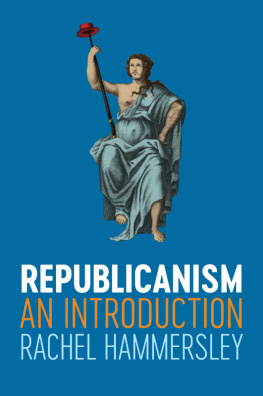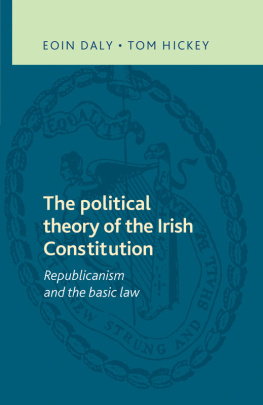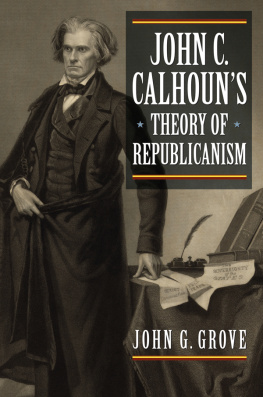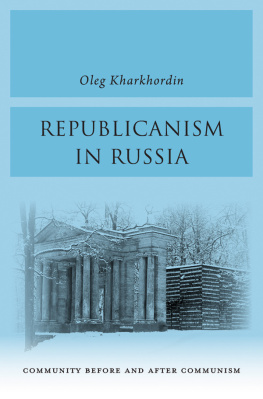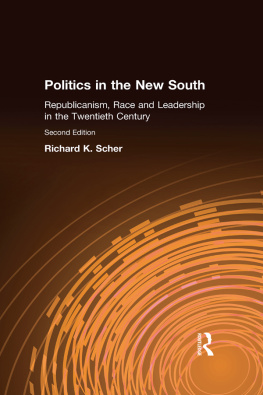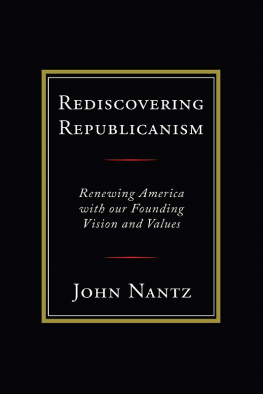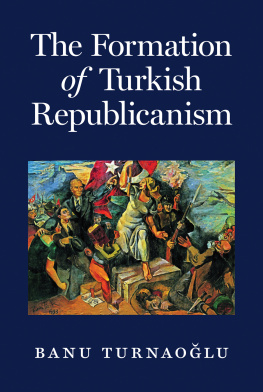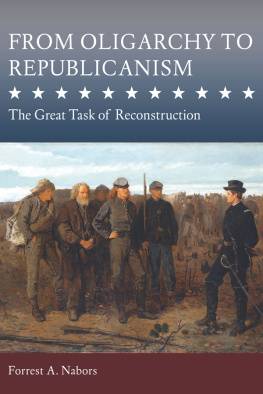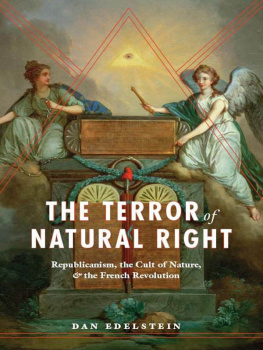Contents
Guide
Pages
Republicanism
An Introduction
Rachel Hammersley
polity
Copyright page
Copyright Rachel Hammersley 2020
The right of Rachel Hammersley to be identified as Author of this Work has been asserted in accordance with the UK Copyright, Designs and Patents Act 1988.
First published in 2020 by Polity Press
Polity Press
65 Bridge Street
Cambridge CB2 1UR, UK
Polity Press
101 Station Landing
Suite 300
Medford, MA 02155, USA
All rights reserved. Except for the quotation of short passages for the purpose of criticism and review, no part of this publication may be reproduced, stored in a retrieval system or transmitted, in any form or by any means, electronic, mechanical, photocopying, recording or otherwise, without the prior permission of the publisher.
ISBN-13: 978-1-5095-1341-3
ISBN-13: 978-1-5095-1342-0 (pb)
A catalogue record for this book is available from the British Library.
Library of Congress Cataloging-in-Publication Data
Names: Hammersley, Rachel, 1974- author.
Title: Republicanism : an introduction / Rachel Hammersley.
Description: Cambridge, UK ; Medford, MA : Polity, 2020. | Includes bibliographical references and index. | Summary: The best single-volume introduction to the political theory and history of republicanism ever written-- Provided by publisher.
Identifiers: LCCN 2020006722 (print) | LCCN 2020006723 (ebook) | ISBN 9781509513413 (hardback) | ISBN 9781509513420 (paperback) | ISBN 9781509513451 (epub)
Subjects: LCSH: Republicanism--History.
Classification: LCC JC421 .H25 2020 (print) | LCC JC421 (ebook) | DDC 321.8/6--dc23
LC record available at https://lccn.loc.gov/2020006722
LC ebook record available at https://lccn.loc.gov/2020006723
Typeset in 10.5 on 12pt Sabon
by Fakenham Prepress Solutions, Fakenham, Norfolk NR21 8NL
Printed and bound in Great Britain by CPI Group (UK) Ltd, Croydon
The publisher has used its best endeavours to ensure that the URLs for external websites referred to in this book are correct and active at the time of going to press. However, the publisher has no responsibility for the websites and can make no guarantee that a site will remain live or that the content is or will remain appropriate.
Every effort has been made to trace all copyright holders, but if any have been overlooked the publisher will be pleased to include any necessary credits in any subsequent reprint or edition.
For further information on Polity, visit our website: politybooks.com
Acknowledgements
This book is the fruit of many years of studying, writing, and teaching intellectual history. It is dedicated to the teachers, colleagues, and students who have helped to shape and clarify my thinking over many years. The importance of discussing ideas and of having ones assumptions, prejudices, and opinions challenged and subjected to close examination cannot be underestimated. This has been the core of scholarship for millennia and it is imperative that it remains so in the future. It is also crucial that the fruits of such debate are not reserved to a closed scholarly world but are made available to, and thus are able to benefit, new generations and wider publics. This book is an attempt to do just that.
Several people have read and commented on this volume in advance of publication. I am grateful, for their insightful comments, to Richard Whatmore, Katie East, and Martyn Hammersley, as well as to the three anonymous reviewers for Polity Press. The spirit of scholarly engagement in which they approached the task was exemplary and I hope that the revisions undertaken in the light of their comments are testimony to the benefits to be gained from subjecting ones ideas to the scrutiny of others. It goes without saying that any errors that remain are my responsibility rather than theirs.
I am grateful to the Fitzwilliam Museum in Cambridge for permission to include an image of a Halfpenny token produced by Thomas Spence. The image of Jacques-Louis Davids drawing Brutus and the Lictors has been reproduced here thanks to the Gettys Open Content Program. I am grateful to the Getty Center for making the image freely available for this purpose.
I also owe a heavy debt of gratitude to the staff at Polity, and especially to George Owers and Julia Davies, for commissioning the volume and seeing it through to publication, and to Manuela Tecusan for her excellent copy-editing. George has gone well beyond what would normally be expected of an editor, acting as an informed and attentive fourth reader and engaging in constructive dialogue with me through the whole process. I feel very fortunate to have had the opportunity to work with him and his team. Finally, thanks go once again to Thomas, Anna, and John, who, along with my parents, Joan and Martyn, have encouraged and supported me throughout the process of producing this book.
Dedication
For my teachers, colleagues, and students past and present
Introduction: What Is Republicanism?
Introduction
Republicanism is a term with multiple, complex, and contested meanings. While Ireland, the United States, and France are all currently ruled by republican regimes, the term is used in very different ways and has distinct connotations in each place. It is therefore crucial that we begin by thinking about its meaning and engaging with some of the complexity surrounding it before we embark on a more detailed exploration of its history.
At the most basic level, republicanism is linked to a notion of self-government. For a political community, this means not being ruled by another state. The establishment of republican city-states in Italy during the Renaissance signalled the refusal of their citizens to be ruled as vassals of the Holy Roman Empire. The Dutch republic emerged after the Dutch Revolt against Spanish rule. And the republic of the United States of America was established after the thirteen colonies declared independence from Britain.
Self-government applies not just to the state but also to its citizens. It means that individuals are subject only to laws to which they have consented, rather than being ruled by anothers will. It is for this reason that, in common speech, republics ruled as they are by and for their citizens tend to be distinguished from monarchies. In the modern world, of course, most states are ruled by and for their citizens via a system of representation. In this context republics are distinguished from monarchies on account of whether the head of state is elected for a limited term of office or inherits the role for life.
The distinction between republics and monarchies is equally problematic when viewed historically. Take the following passage from the fragmentary work De republica by Marcus Tullius Cicero, the famous Roman statesman, philosopher, and political writer: a commonwealth [republic] (that is the concern of the people) then truly exists when its affairs are conducted well and justly, whether by a single king, or by a few aristocrats, or by the people as a whole. The eighteenth-century Genevan-born political theorist Jean-Jacques Rousseau expressed something very similar in a famous passage from his Social Contract:
I therefore give the name Republic to every State that is governed by laws, no matter what the form of administration may be: for only in such a case does the public interest govern, and the res publica rank as a reality. Every legitimate government is republican.
In the accompanying footnote he continued:
I understand by this word, not merely an aristocracy or democracy, but generally any government directed by the general will, which is the law. To be legitimate, the government must be, not one with the Sovereign, but its minister. In such a case even a monarchy is a republic.

